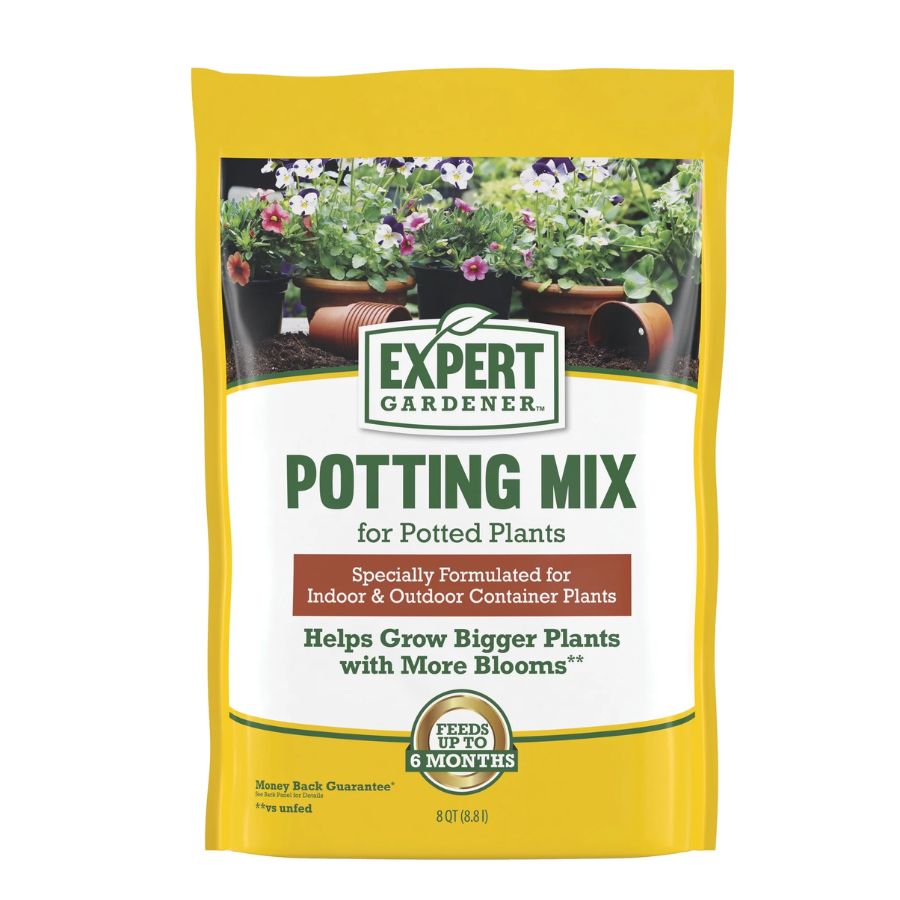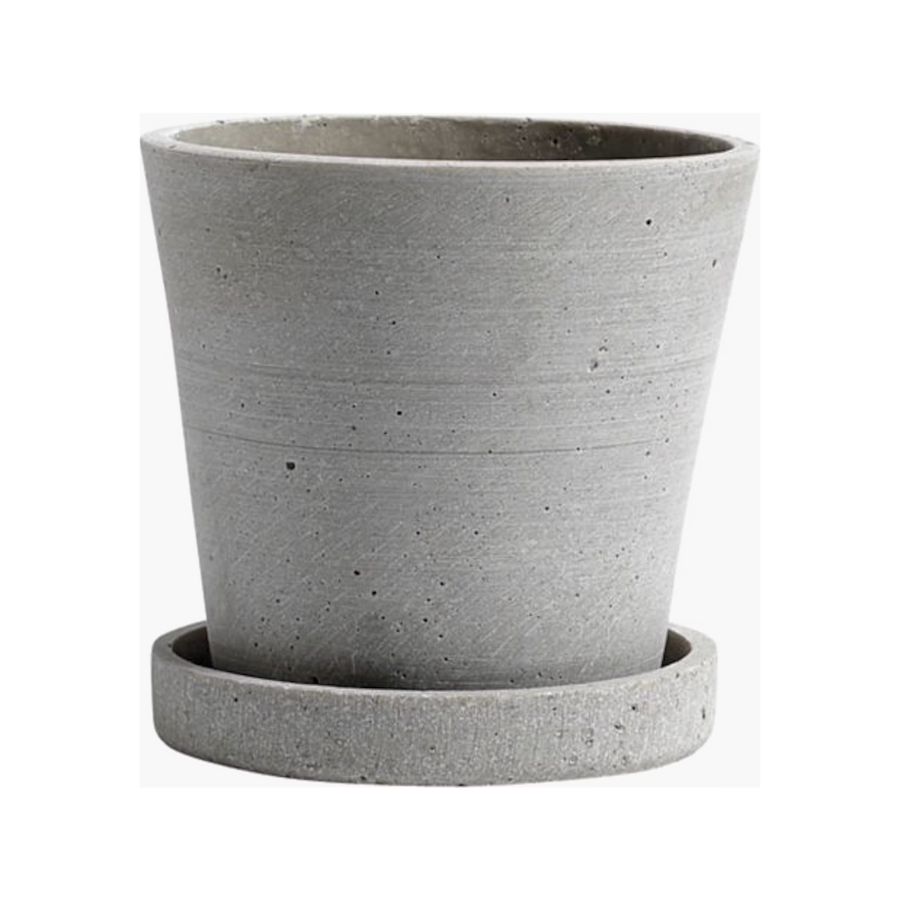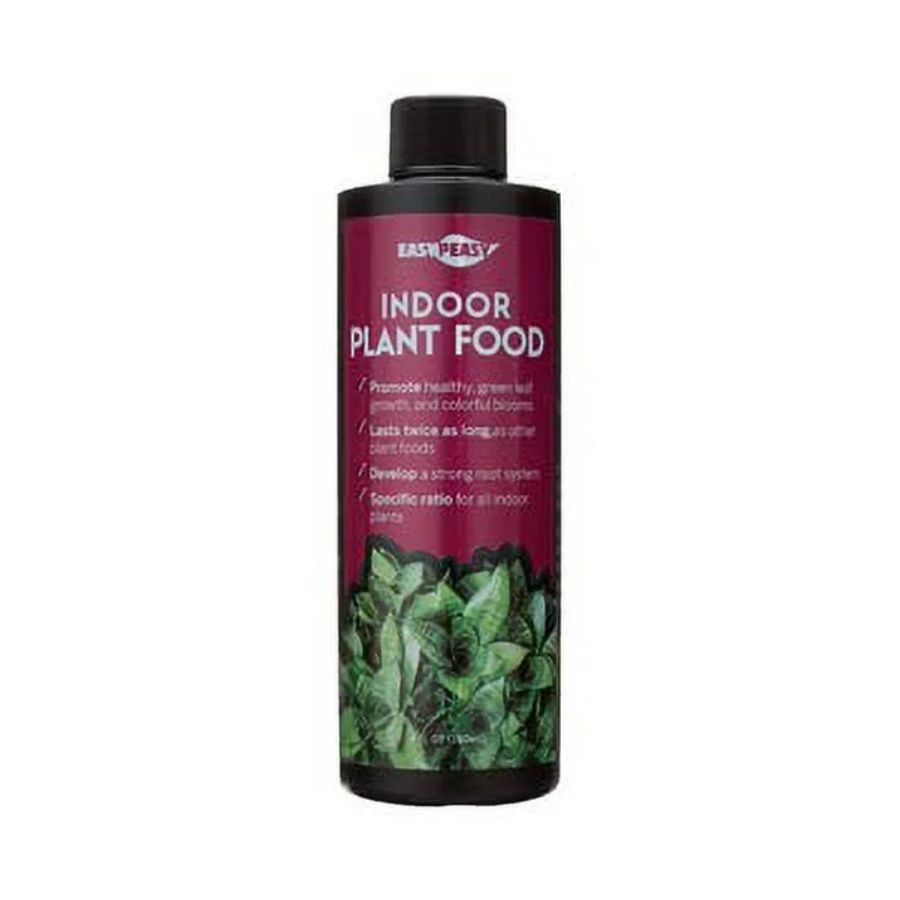6 Reasons Why Your Houseplants May Smell Bad — and How to Fix Them, Quickly
If your houseplants are smelling a little offputting, these are the reasons why (and crucially, how best to solve the problem)
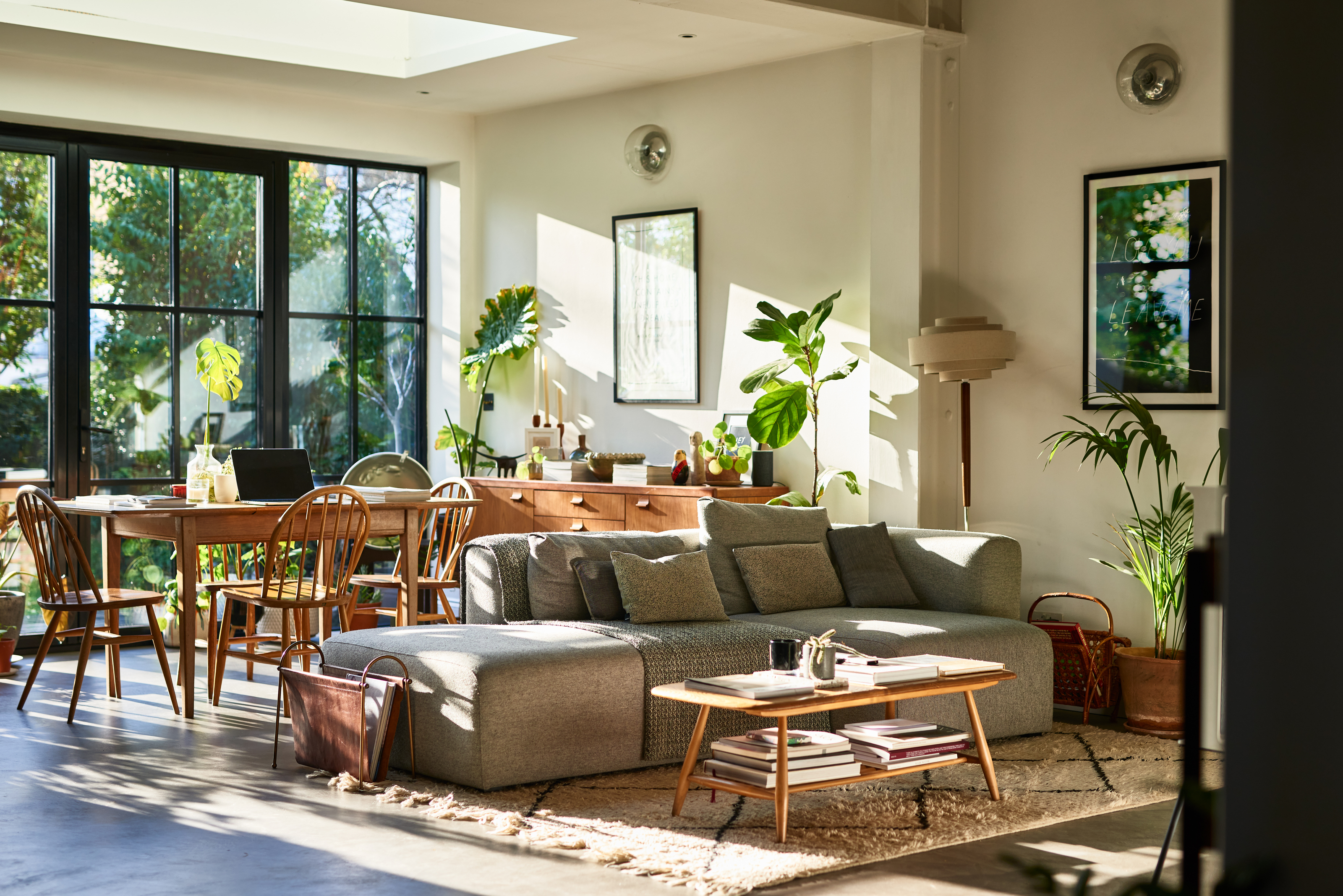

For green-fingered houseplant parents, nothing is quite as frustrating as when you have an unhappy houseplant and you can't quite identify what the problem is. More often than not, I rely on apps that help identify and diagnose problems, but what happens if your issue isn't a visual one? So often, houseplants that have been badly looked after end up releasing a bit of a stale odor. You can try and mask the smell with as many candles and diffusers as you like, but ultimately, a stale smell can end up pervading throughout the home.
The key to getting to the root of the problem is to understand exactly what the issue is. Here, I speak to three indoor houseplant experts to find out what the issues are that might be causing your plant to smell, whether it's a houseplant for beginners or a more tricky plant to manage. More importantly, we get to the crux of how to solve the problem with a long-term solution.
1. Overwatering
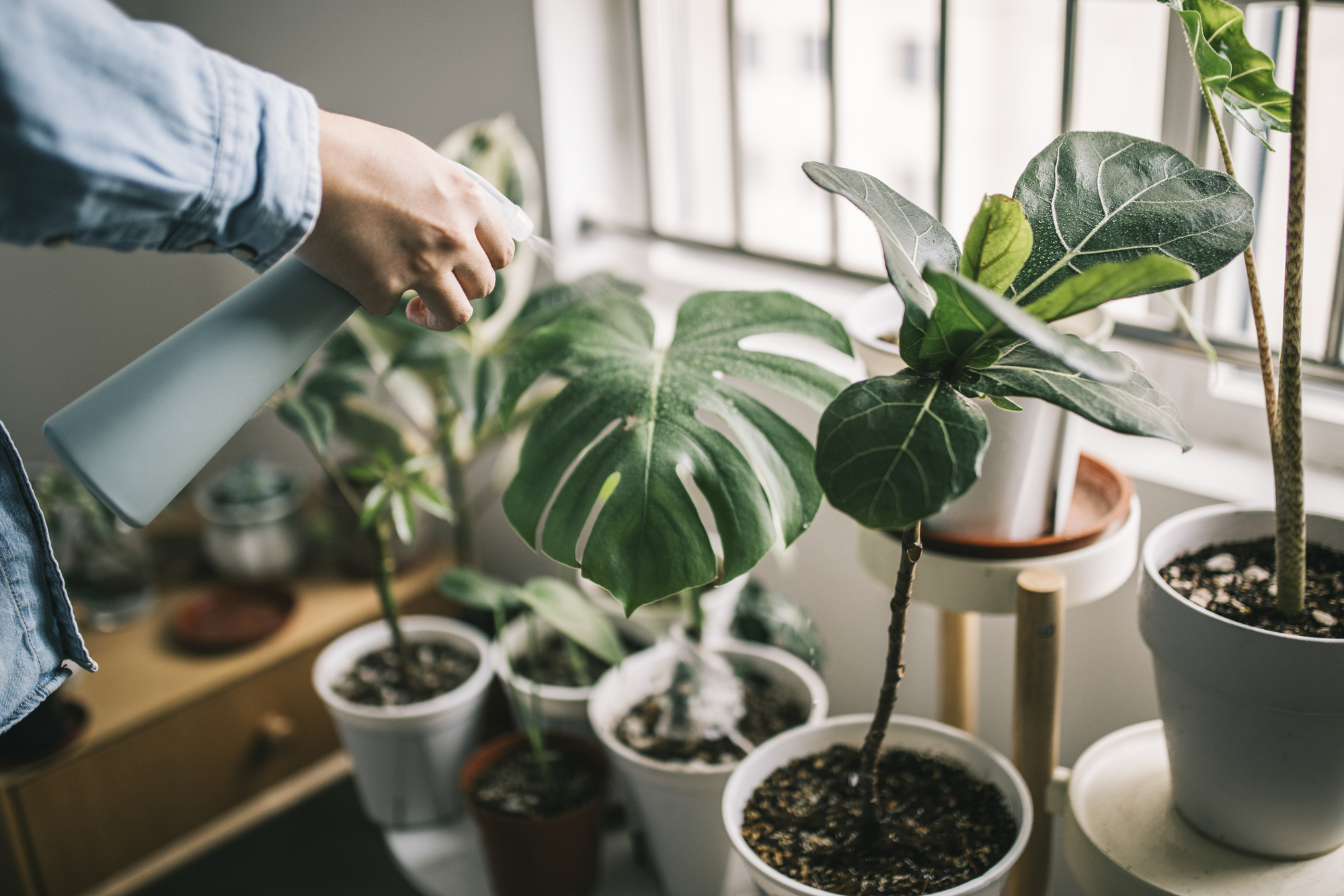
Overwatering is the most common problem when it comes to stale-smelling houseplants. This is because you are feeding your plant too much water than it can take, which means your soil becomes waterlogged. When the soil doesn't absorb the water, you just end up with loose water sitting in your pot, that after a while will become stale.
'Excessive moisture in the soil can lead to rot and anaerobic activity which results in a foul smell,' says Paris Lalicata, plant expert at houseplant delivery and care service, The Sill. 'Avoid overwatering by letting the soil dry out more and increase the light if the plant is in a low-light area,’
Pay attention to how often you should water your houseplants, and adjust your watering routine accordingly, says professional gardener Zahid Adnan at The Plant Bible. 'Allow the topsoil to dry out before watering again, and ensure your pots have proper drainage.'
'Always check the top couple of inches of soil before adding water,' agrees Lina Cowley, a master botanist at Trimmed Roots. 'It should feel dry to the touch. Only water when needed based on that plant's preferences.'
2. Pests causing root rot
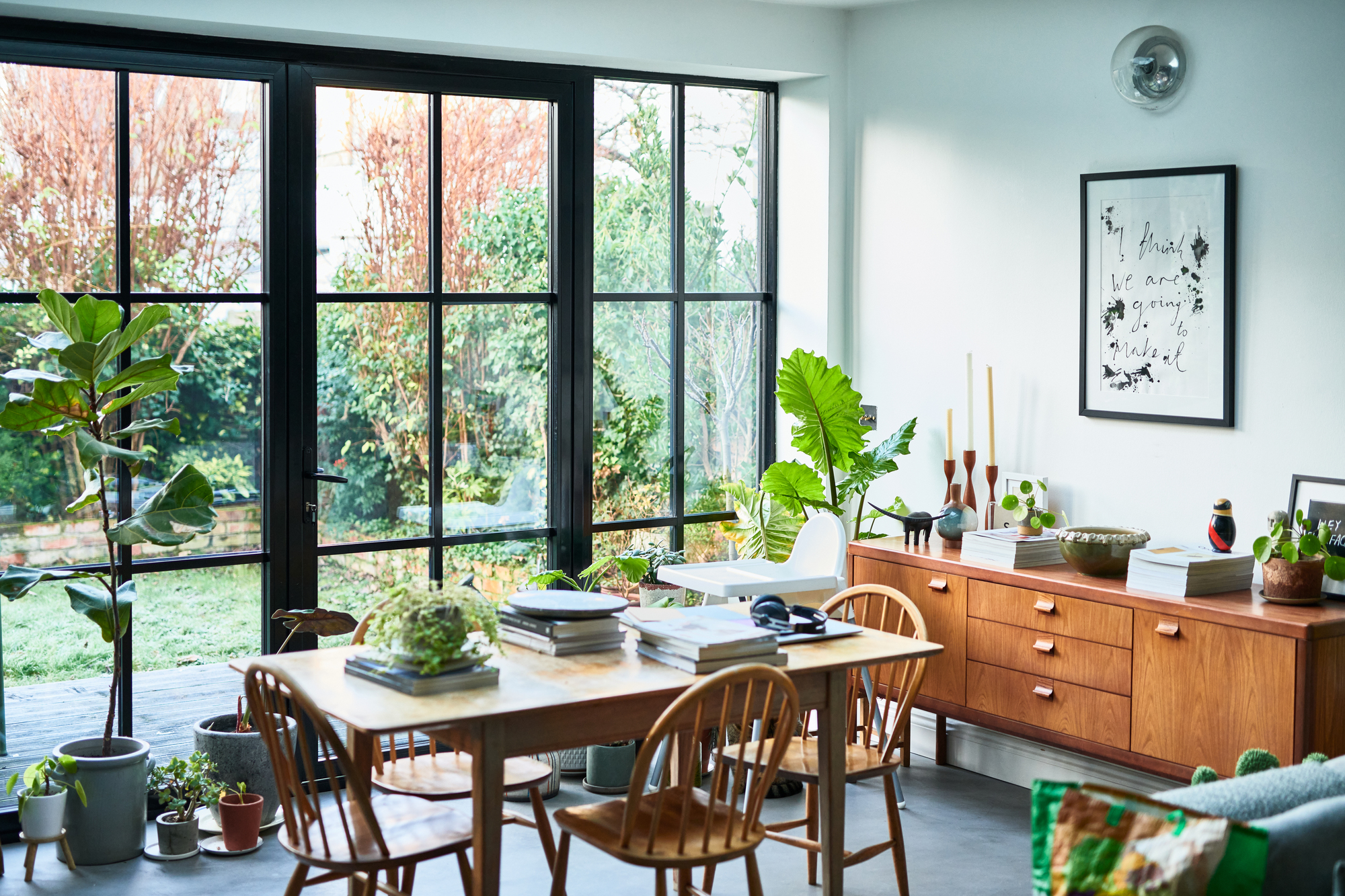
Gnats or pests on your plant might be another reason why your houseplants are releasing a foul smell. An infestation leads to a bad smell as they can end up causing root rot. For those who are new to houseplant care, it can be frustrating to pinpoint exactly why and how your plant has ended up with an infestation, but essentially, it is also related with too much water. Unless your home is experiencing issues with damp, mold and fungus, the most likely source of fungus gnats is houseplant soil that is far too wet. When this happens, plants start to rot and grow fungus. Fungus gnats lay their eggs in this soil, so you could soon find yourself with a serious infestation.
'Inspect your plants regularly for signs of pests,' says Zahid. When it comes to how to get rid of fungus gnats and pests, treat infestations promptly with appropriate insecticides, says Zahid. 'Insecticidal soaps or neem oil are both good places to start.'
3. Poor soil drainage
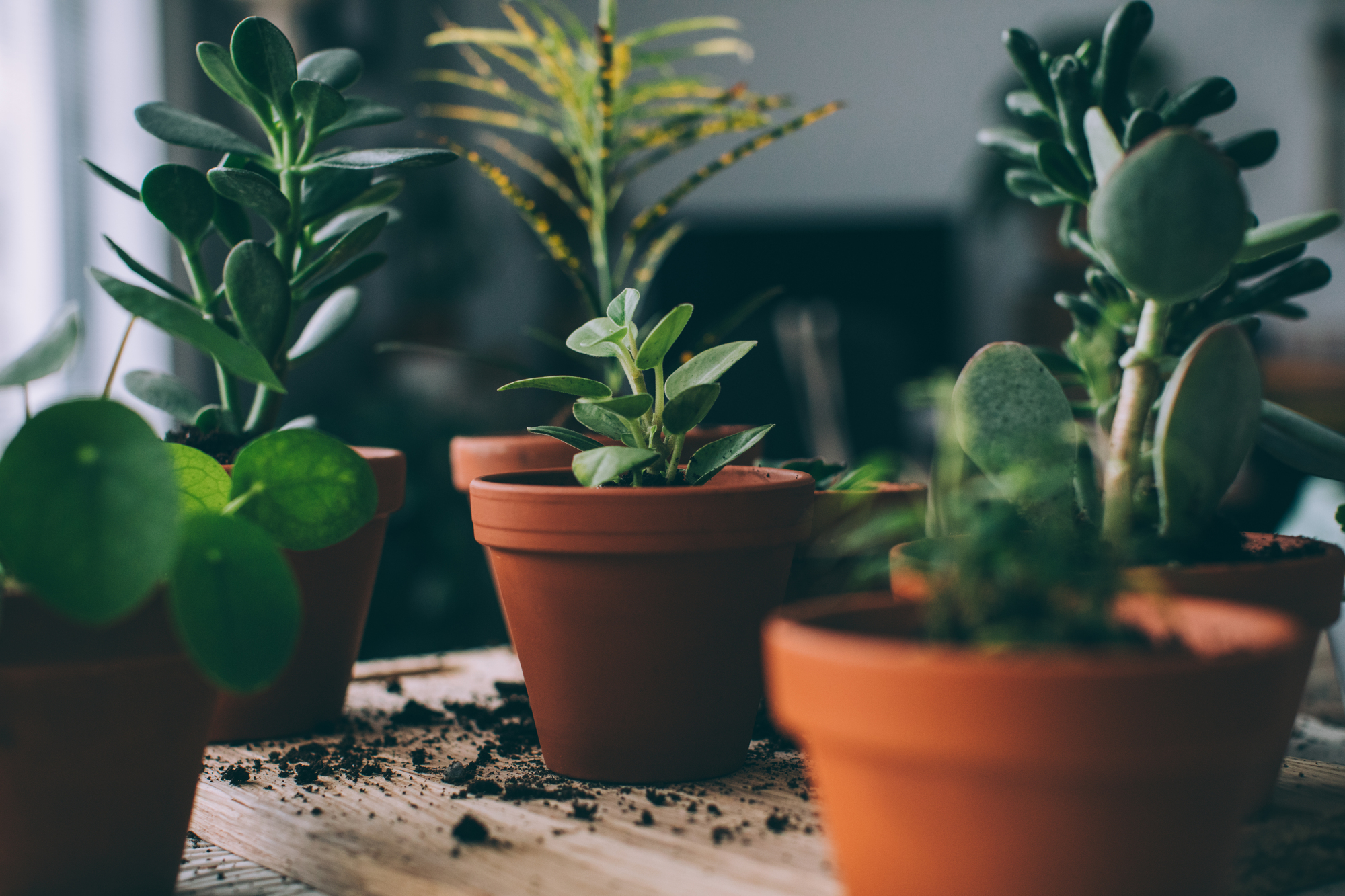
The third problem the plant experts have identified is poor soil drainage, which relates to the point about overwatering. In this instance, you might not have been overwatering, but if your plant doesn't have adequate drainage at the bottom of the pot, water will just build up, leading to the same effect as overwatering - the stale smell of water, which isn't good for your living room's scentscape, let alone your houseplant's health.
'Not having enough drainage in your plants' soil or planter can cause soil to become water-logged and foul-smelling,' says Paris. 'Ensure to use a potting mix that is well-draining and use planters with drainage holes.'
'Use well-draining soil mixes and pots with drainage holes. Repot plants if necessary to improve soil aeration,' agrees Zahid.
4. Decaying plant matter
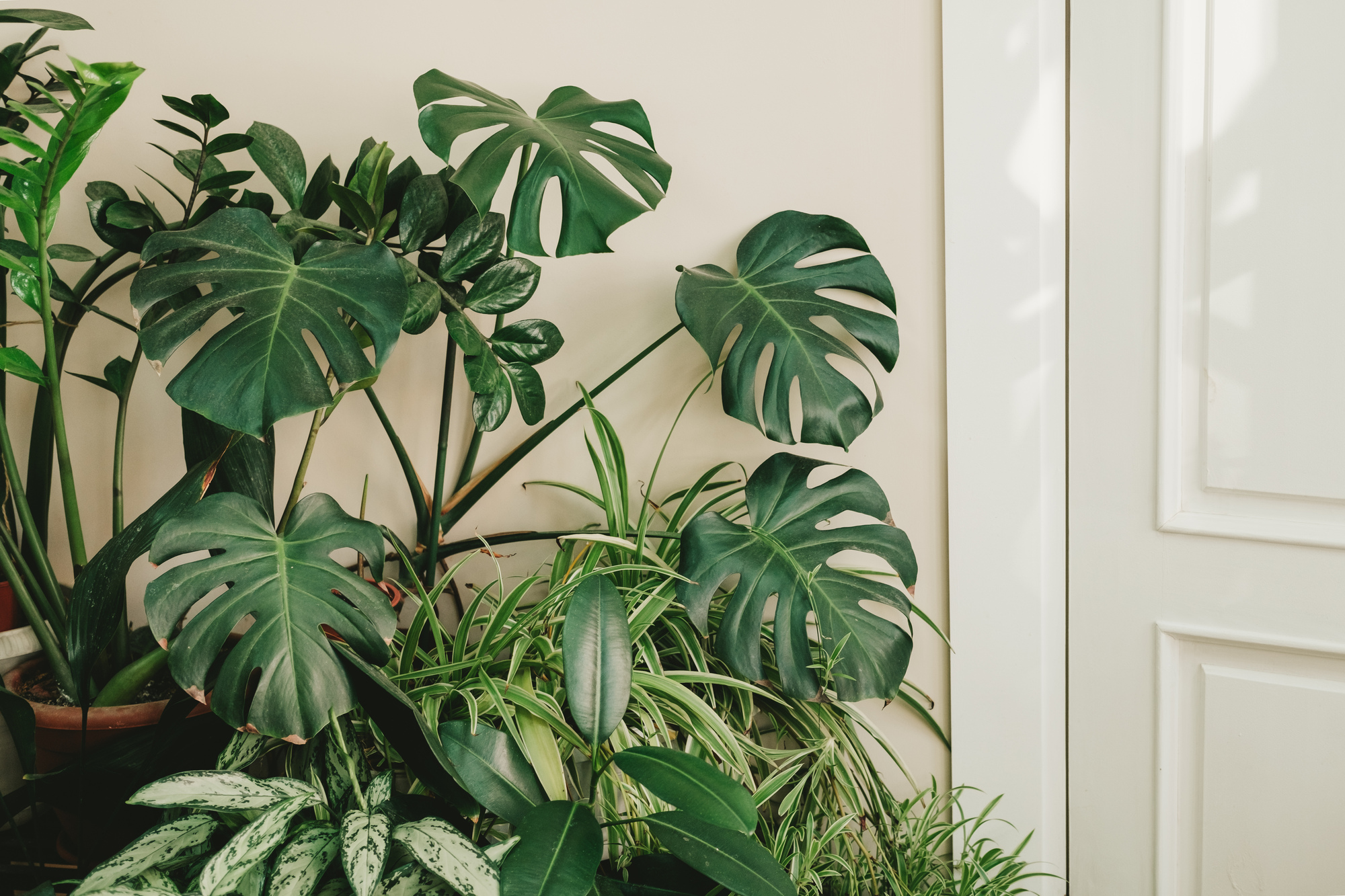
An unhealthy plant also might be a sign that your plant is disease-ridden, resulting in mold on houseplant soil. 'Some infections caused by fungi and bacteria can cause a foul smell on a plant's foliage,' says Paris. 'Keep your plants healthy, avoid splashing water onto the leaves, and prune off any infected plant material. Treat with a fungicide.' It's also important to keep the soil surface clean to prevent the growth of mold or mildew.
'To remedy root rot, Whitney Bromberg Hawkings of plant delivery service, Flowerbx tends to remove any rotten roots from the plant and leave it out of its container for a full 24 hours. 'Once the remaining roots have dried out, you can repot your plant in fresh soil to help it reset. You can even add in a little activated charcoal or baking soda, which are known for their odor-purifying magic!'
5. Poor quality soil and fertilizer
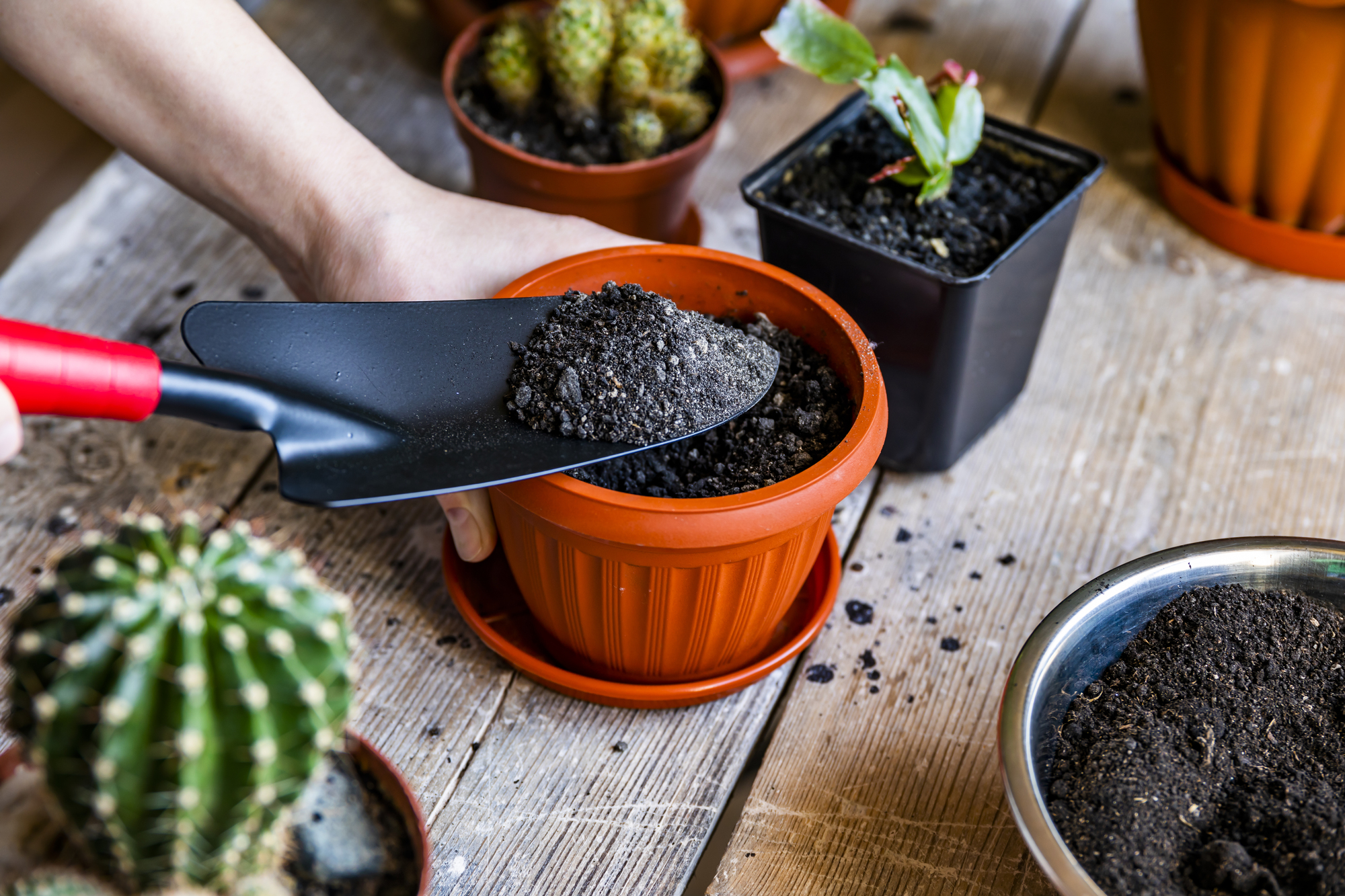
Think about the quality of your soil too to avoid any houseplant decay. 'Another common reason for badly smelling plant soil is using low-quality potting mixes or even garden dirt,' says Lina. 'These compact over time and contain organic bits that break down in the indoor environment. It’s best to invest in commercial soil blends made specifically for container gardening. These are sterile and lightweight to resist compaction. Re-potting in fresh mix annually rejuvenates plants too,' says Lina.
Another reason for a bad scent from your houseplants could be your choice of fertilizer. 'I always recommend that you fertilize houseplants naturally with organic fertilizer on plants – indoors and out – but unfortunately, this can come with a less than sweetly-scented aroma,' adds Whitney.
6. Lack of air circulation
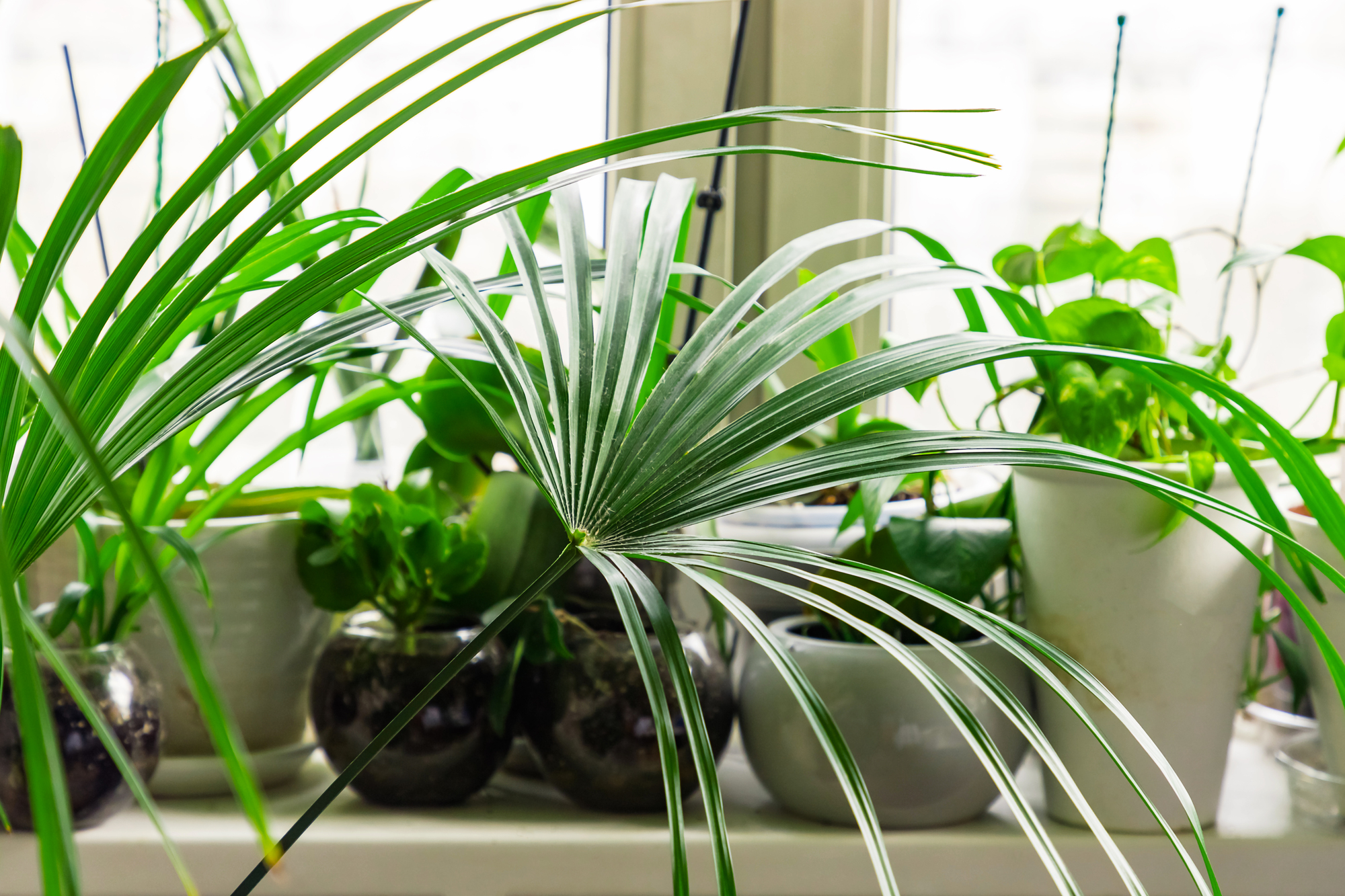
Finally, make sure the area in your home where your plant sits has enough airflow. While most houseplants don’t like direct sunlight, having them in dark corners or spaces with no airflow leads to excess moisture being trapped. This dampness encourages decomposition and foul smells. Ensure plants get adequate bright, indirect light for a few hours daily. Supplement them with grow lights if needed.
While some houseplants like high levels of humidity, and may even thrive in rooms that have high levels of moisture in the air, like houseplants for bathrooms, it's all about finding the right balance to stop your houseplants from smelling stale.
Moisture in the air creates perfect conditions for odor causing organisms to grow and thrive. 'Increase air circulation by incorporating fans or moving to a well-ventilated area to enhance air circulation,' advises Paris. 'Ensure proper ventilation by opening windows periodically,' adds Zahid.
3 buys for healthy houseplants
Be The First To Know
The Livingetc newsletters are your inside source for what’s shaping interiors now - and what’s next. Discover trend forecasts, smart style ideas, and curated shopping inspiration that brings design to life. Subscribe today and stay ahead of the curve.

Former content editor at Livingetc.com, Oonagh is an expert at spotting the interior trends that are making waves in the design world. She has written a mix of everything from home tours to news, long-form features to design idea pieces, as well as having frequently been featured in the monthly print magazine. She is the go-to for design advice in the home. Previously, she worked on a London property title, producing long-read interiors features, style pages and conducting interviews with a range of famous faces from the UK interiors scene, from Kit Kemp to Robert Kime. In doing so, she has developed a keen interest in London's historical architecture and the city's distinct tastemakers paving the way in the world of interiors.
-
 Sateen vs Percale Sheets — What's the Difference, and Which Are Better?
Sateen vs Percale Sheets — What's the Difference, and Which Are Better?Who would have thought a simple weave pattern could make all the difference to your sleep
By Devin Toolen
-
 I Asked Interior Designers to Share the Worst Design Trends They've Seen on Social Media — And What They Want to See Instead
I Asked Interior Designers to Share the Worst Design Trends They've Seen on Social Media — And What They Want to See InsteadJust because something is trending, doesn't mean it's tasteful — from dupe-culture to OTT lighting, here's what designers hate seeing in homes
By Devin Toolen
